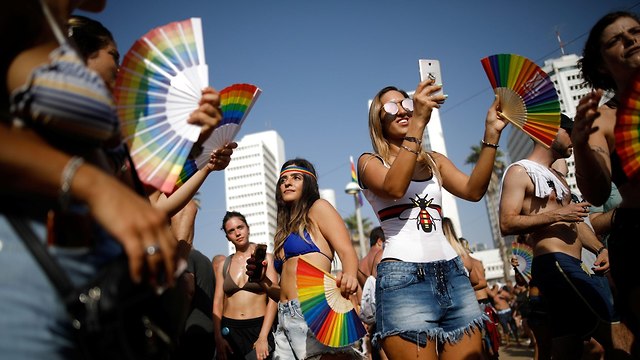

The culture secretary is unhappy with the decision and slams it with raging fury. “London!” she screams, although she isn’t even responsible for public broadcasting. “Our eternal capital! The city that survived the horrible blitz during World War II! Our beloved city, which was founded in 43 AD, won’t host the Eurovision? What’s the point of the BBC if we can’t control it?”
The event I just described never happened, of course. The 1998 Eurovision Song Contest was held in Birmingham, and not a single British politician had anything to say about it.
No one raised an eyebrow when Germany decided to host the 2011 Eurovision Song Contest in the city of Düsseldorf. In fact, Germany hosted the Eurovision three times, and it was never in Berlin or in Bonn, the former capital of West Germany.
Not a single Swedish citizen was offended when Sweden, which has won the Eurovision seven times so far, hosted the event in the city of Malmö (twice) or in Gothenburg.
The competition has never taken place in Bern, the capital city of Switzerland, although the country won the contest three times.
Ireland went as far as hosting the 1993 Eurovision in the remote town of Millstreet. Not a single Irish person saw it as an offense to the capital city of Dublin or to the Irish people’s historical right to the eternal city of Dublin.
In the State of Israel, however, things look different. Every event, from a friendly soccer match to the European song contest, takes on a political meaning and is perceived as an opportunity to prove to the world that we own Jerusalem and that there is an unshakable connection between the Jewish people and the holy city.
Unfortunately, the world isn’t very impressed, and this insistence is usually perceived as pathetic and even ridiculous. The Europeans know what any freshman psychology major knows: Our Jerusalem complex points to insecurity more than anything else.
The Eurovision has been hosted in Jerusalem twice, at a time when politicians were more careful about what they said and when the crazy attempt to make headlines—even if it harms the general interest—wasn’t as common as it is today.
In 1979 and in 1999, the Eurovision was more modest: There were no semi-finals, the delegations landed here a week before the contest rather than two weeks, and the number of fans that arrived was much lower. Then, like today, most of the tourists who arrived belonged to the LGBT community. And I find this point significant in determining the identity of the hosting city.
Tel Aviv has successfully branded itself as a hot tourism destination for gay people, and its Pride Parade has gained an international reputation. Imagine the wonderful PR Israel will receive if thousands of tourists and journalists are exposed to the Pride Parade, to the community’s centers, to the fact that the entire city is decorated with rainbow flags and to the wonderful tolerance.
But this isn’t the only reason Tel Aviv is more suitable for hosting the Eurovision: The city has a much more dominant culinary scene than Jerusalem, an unstoppable nightlife, certain transportation options on Shabbat (at least it has “sherut” taxis) and many culture and art events. Tel Aviv is sexy, cheeky and progressive. Tel Aviv and the Eurovision are a perfect match.
That doesn’t mean that hosting the Eurovision in Tel Aviv will completely conceal Jerusalem, Heaven forbid. Jerusalem can definitely be integrated into the broadcasts, in the artistic program between the songs and the voting stage or in the clips screened between the songs.
While the events, cocktails and parties are usually held in the hosting city, I’m sure no one will object if some of them are moved to the Israel Museum or to the Tower of David, for example. If Culture Minister Miri Regev makes an exception and avoids infiltrating the event and insisting on shaking hands with the Estonian singer, for example, the events in Jerusalem will go ahead peacefully without any boycotts.
And let’s not forget the Haredi parties’ threats and their demand to avoid a desecration of Shabbat in Jerusalem. In 1999, the general rehearsal was held without an audience, although tickets were sold beforehand, due to a Haredi ultimatum, and that created a major scandal. This time, the Europeans have made it clear that the trick of holding a rehearsal without an audience won’t work. The Haredi threats are annoying and insolent, and they clearly don’t own Jerusalem, but this time their desires match the general interest.
The Eurovision’s location is not a political question. Even those who are against any compromise in Jerusalem and those who believe it’s possible and necessary to reach a political solution in the city, must admit that Tel Aviv is Israel’s economic and cultural capital and is seen in a much more positive light in the world than Jerusalem.
Let’s hope that the Israeli Public Broadcasting Corporation, which has so far acted quietly and sensibly, will succeed in warding off the political pressures, led by the unstoppable meddling of Miri Regev. See you in Tel Aviv?


















